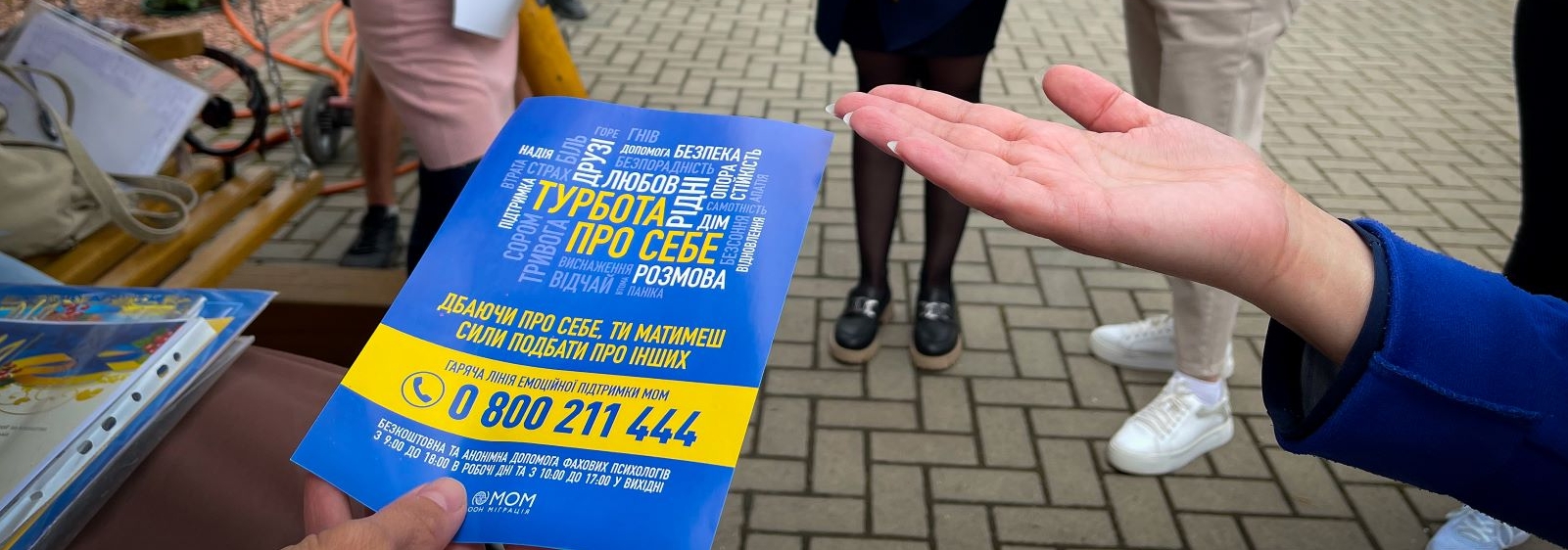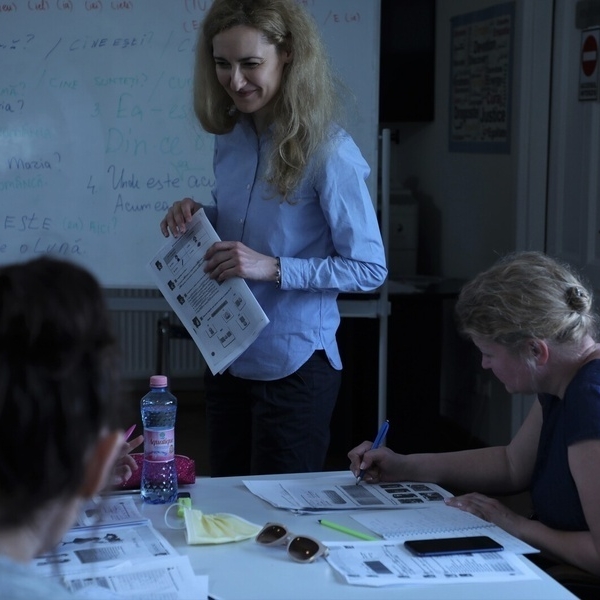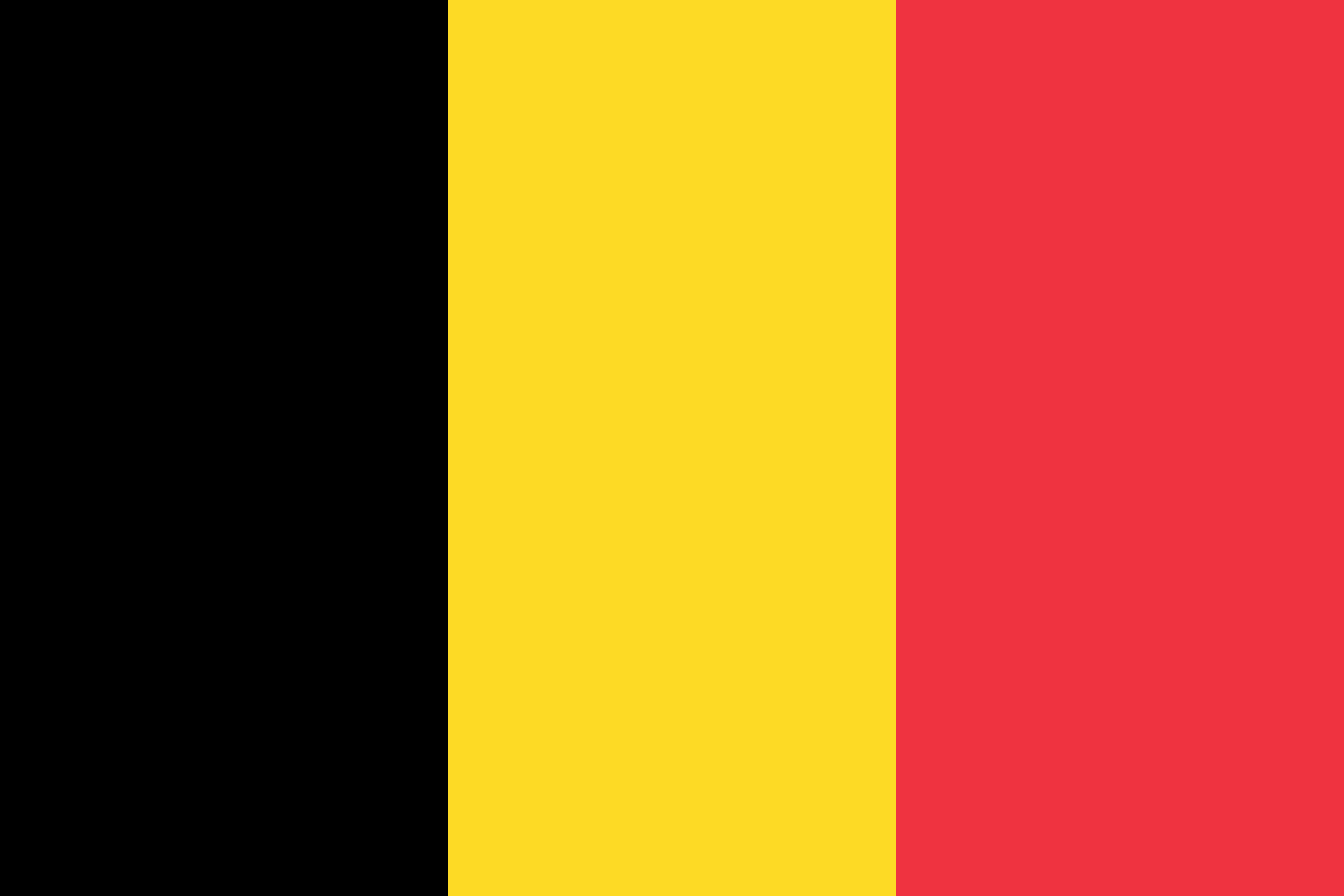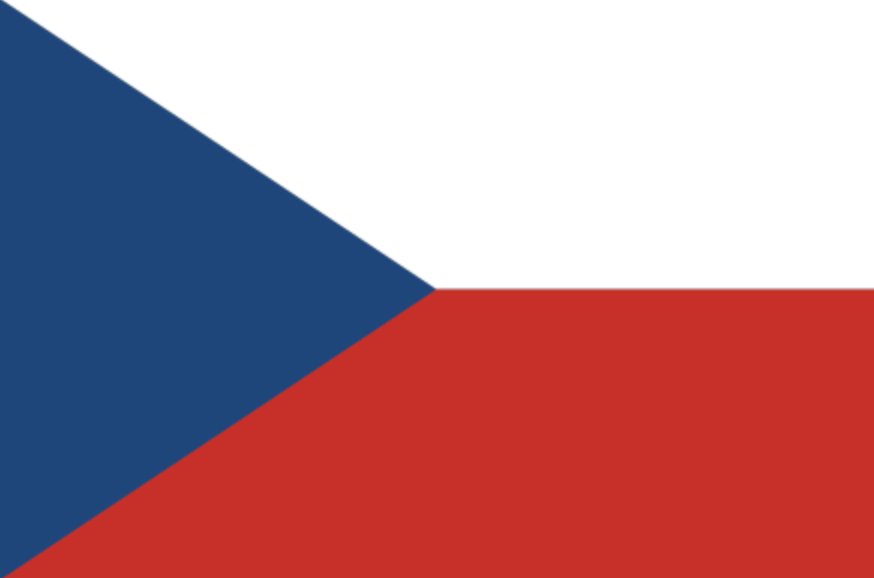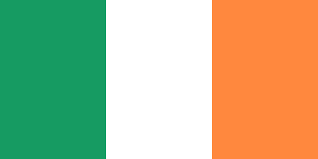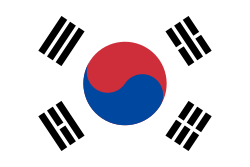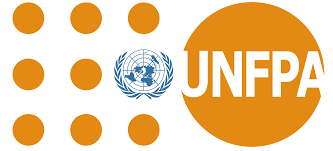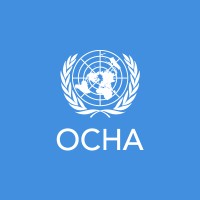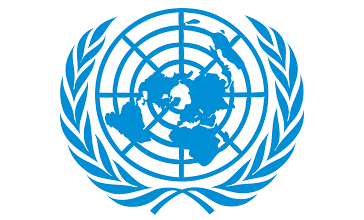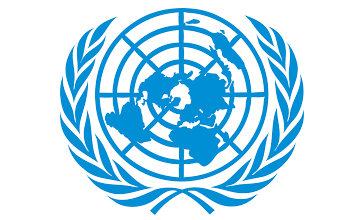IOM Vision
IOM will support Ukraine and neighbouring countries to ensure the dignity, safety and protection of vulnerable conflict-affected populations. Targeting internally displaced persons (IDPs), refugees, third-country nationals (TCN), and affected communities, IOM will support the provision of and access to quality services, leveraging active and growing programming across the humanitarian, development and peace nexus. In close coordination with national and regional stakeholders, IOM is engaged in a principled and timely multi-sector response, supporting government partners and local authorities to respond to the crisis and assist affected people, including through early recovery and resilience-building initiatives which enable displaced households to take their first steps toward durable solutions in Ukraine and to access inclusive services and support in the countries of Belarus, Bulgaria, Czechia, Estonia, Hungary, Latvia, Lithuania, Moldova, Poland, Romania and Slovakia, among others.
Objective
Saving lives and protecting people on the move
IOM will provide critically needed assistance to internally displaced persons (IDPs), refugees, returnees, affected populations, third-country nationals (TCNs), and other people on the move. IOM places a specific focus on vulnerable groups, including single parents, persons with disabilities, children, including unaccompanied and separated children (UASC), older persons, survivors of GBV and human trafficking, and other human rights violations, and those that have been disproportionately affected by lack of services and loss of livelihoods among others. Planning figures are estimates based on currently available data and may vary throughout the year as the situation evolves.
In Ukraine, IOM will continue assisting vulnerable people affected by conflict and displacement through the provision of multi-purpose cash assistance (MPCA), and cash for winterization, to cover basic needs in a dignified manner while reducing negative coping mechanisms. The amounts and nature of the assistance are all coordinated with the Shelter Cluster and Cash Working Group. Beyond cash transfers, IOM will additionally seek to promote the self-reliance of vulnerable households through initiatives which seek to support small-scale agricultural sustainability.
Accordingly, IOM will:
- Provide MPCA to eligible households, prioritizing beneficiaries in rapid emergency situations who require fast, ad-hoc MPCA disbursements (including IDPs who have been displaced in the last 30 days, households residing in areas of armed conflict, where conflict is ongoing, and households affected by sudden shelling), and those in emergency settings who require cash disbursements due to protracted displacement, and those meeting certain social-economic vulnerability criteria;
- Provide cash for winterization as a top-up to MPCA to cover the significant increase in household expenditure for heating in the winter months;
- Promote self-reliance through sustenance grants to help vulnerable households produce their own food and sell any surplus in the local market. The grants can be used to purchase greenhouses, agricultural tillers, small irrigation systems, seeds, etc., along with the MPCA and complementary livelihoods assistance.
In neighbouring countries, IOM will:
- Provide MPCA targeting households and persons with identified vulnerabilities in line with Cash Working Groups guidance and national social protection systems when applicable.
- Provide food in different forms (food parcels, vouchers and meals at reception centres).
In Ukraine, IOM has deployed mobile medical teams with implementing partners, providing curative, preventive, and promotive services, including trauma care and psychological counselling, to improve access to primary and secondary health care, including support for non-communicable diseases, and to reduce the burden on the health system in areas of high concentration of displaced populations. The main focus will be to support government health facilities and medical supply-chain, working through implementing partners and directly implementing activities where needed, including:
- Support the expansion of primary healthcare services in newly accessible areas, along with the continuation of service provision throughout the country. This includes human resources, provision of medicines and medical supplies and equipment, and transportation services for non-emergency and emergency cases, as well as home-based continuity of care. IOM will support the provision of treatment for acute illnesses, immunization (routine and outbreak response), reproductive and maternal and child health, and management of non-communicable diseases;
- Implement health promotion activities and establish referral systems for individuals requiring specialized care, including survivors of GBV and human trafficking, persons with disabilities, persons with other protection needs or/and in need of Mental Health and Psychosocial Support (MHPSS) services;
- Develop the capacity of health professionals, including implementing partners and the Ukraine Ministry of Health.
In neighbouring countries, IOM will continue to support with the identification and prioritization of health needs and gaps within each country’s health system and health service capacity to enable access to refugees, TCNs and other migrants. Where necessary, IOM will partner with specialized partners to implement health programming. Activities may include:
- Provide capacity development support to primary and secondary healthcare facilities (medicine, medical equipment, etc.) through a health system strengthening approach.
- Increase the availability of direct health assistance (screening, examination, referrals, and interventions), infection prevention and control and disease surveillance, including through operating mobile health teams and supporting health checkpoints at borders.
- Cover expenses for continuity of care for patients with chronic conditions, including those with disabilities, as well as the IOM Tran Med Initiative, which supports the transfer of vulnerable persons affected by the war in Ukraine to countries where they can continue their medical treatments and care.
- Support the strengthening of health referral networks and national health insurance systems.
In line with the IOM Manual on Community-based Support (MHPSS) in Emergencies and Displacement, IOM has been supporting IDPs, returnees and impacted communities across its response in Ukraine. Activities include the following:
- Provide focused MHPSS services (such as individual and group counselling) to support specific populations such as veterans, volunteers in collective centres and others impacted by the war but do not have clinical mental health problems, while ensuring the mainstreaming of social considerations and safety of beneficiaries in service provision;
- Provide psychological consultations, directly (including through psychosocial mobile teams) or through partners, to people with pre-existing and/or emerging forms of severe stress, behavioural and relational problems, and mental disorders;
- Operate an MHPSS hotline covering all of Ukraine to provide remote psychological consultations and referrals to war-affected populations;
- Strengthen family and community-based support schemes, and reach out to vulnerable persons requiring further assistance;
- Enable other sectors’ service providers in direct contact with war-affected individuals to respond to their needs in a psychosocially informed way, by training the service providers on e.g., Psychological First Aid (PFA), basic MHPSS and referral mechanisms;
- Address the increasing psychosocial needs of returnees, both from displacement and abroad, who are transiting through points of entry, temporarily relocating to collective centers or returning to areas of origin, through enhanced access to essential services and referral pathways, and capacitating local organizations to deliver psychosocial assistance;
- Set up support groups for people in particularly vulnerable situations owing to reduced social interaction.
In neighbouring countries, IOM will:
- Support increased accessibility of MHPSS services to refugees and TCNs, including by deploying multidisciplinary psychosocial mobile teams that can provide linguistically and culturally appropriate services;
- Establishing/strengthening support hotlines and referral linkages;
- Organize and facilitate socio-relational and recreational activities for groups (such as sport and play activities, art-based interventions and creative activities) in order to strengthen inter-personal exchange, supportive networks and social cohesion;
- Train frontline actors on responding to the psychosocial and mental health needs of different categories of persons in need, including children;
- Continue public information campaigns against mental health stigma and provision of psychoeducation for refugees and displaced TCNs.
IOM works with national authorities in Ukraine and other regional and international partners to help establish and maintain adequate response mechanisms and strengthen an integrated approach to border management to facilitate, assist and protect crisis-affected populations crossing borders, and rights-based policies and procedures are in place to guarantee safe pathways. IOM will:
- Conduct recurring Humanitarian Border Management (HBM) capacity assessments in coordination with national authorities at the central level as well as at Border Crossing Points (BCPs) which could include engagement with relevant stakeholders on the corresponding/neighbouring side of the BCP;
- Support national authorities in strengthening their preparedness for high volume cross border movements and changing mobility dynamics, particularly through developing contingency plans, simulation exercises, devising simplified protection-sensitive procedures, and providing fixed and mobile registration equipment;
- Improve capacity to screen and refer vulnerable individuals with a focus on UASC, protection cases and/or potential victims of human trafficking, exploitation or abuse;
- Contribute to strengthening the institutional capacity of Ukrainian consular services to enhance their capacities to assist and protect the rights of Ukrainian nationals living abroad due to the war;
- Disseminate information at the border for people on the move, including on safe border crossing, safety tips, accessing temporary protection in the EU and non-EU countries, relevant hotline numbers, risks of various forms of exploitation and abuse, such as human trafficking, and any other emerging topic;
- Provide critical equipment at the border to maintain uninterrupted border operations, such as diesel generators, and lighting infrastructure;
- Facilitate and coordinate multisectoral work at the borders implemented by IOM, including protection, WASH, health, shelter, MHPSS, so the cross-border passage is safer, smoother and warmer, particularly during the winter months.
In neighbouring countries, IOM will:
- Liaise with national authorities and border personnel on corresponding sides of the border, to ensure commensurate approaches to humanitarian border management and compatible application of legal and administrative provisions;
- Maintain dialogue with coordination bodies and regional entities to promote consistency in approaches; flag disparities as well as possible solutions to challenges; and support States to adapt to emerging cross-border trends;
- Work on developing the capacities of border authorities, social workers and other frontline stakeholders at BCPs and central levels, on Humanitarian Border Management, encompassing protection, human rights and international humanitarian law as well as logistical functions;
- Based on capacity assessments, provide support inclusive of equipment and training aiming to ensure winter preparedness, and improve the ability to process high volume cross border movements and changing mobility dynamics, including registration;
- Enhance the capacity of border authorities to conduct search-and-rescue operations at the border with Ukraine, combat human trafficking and prevent the illegal transport of undeclared goods, weapons, ammunition, and explosives;
- Where requested, facilitate cross-border cooperation agreements between Ukraine, EU and non-EU countries, to ensure the orderly movement of goods, services, people, humanitarian assistance, and trade commodities.
The response to support affected populations in Ukraine’s neighbouring and other countries affected by the crisis includes various regional and bilateral movement assistance mechanisms such as voluntary transfers through the EU Solidarity Platform, humanitarian corridors, transits, resettlement and temporary visas programmes. IOM will continue ensuring that TCNs are able to travel in a safe, dignified and orderly manner to their countries of origin following a case management approach. Activities include:
- Conduct rapid vulnerability screening and referrals as needed;
- Provide pre-departure counselling and information.
- Provide transportation support, upon departure, transit and at reception;
- Support with necessary health pre-embarkation checks, referrals, required PCR tests, COVID-19 safety measures, stabilisation for people with medical conditions prior to travel and medical escort where necessary;
- Coordinate assistance among sending, transit and receiving countries.
IOM protection activities aim to prevent and respond to violations of human rights, reduce or prevent threats to life, dignity and well-being, while increasing self-reliance capacities of the affected people, by addressing their needs and upholding their rights. IOM’s priorities include direct service delivery and assistance for persons with protection needs and referrals to specialized services, prevention efforts through awareness-raising and community outreach, and capacity development throughout the response. Protection teams further work closely as part of the wider IOM team both to support protection mainstreaming in IOM’s service delivery and to enable service referrals for protection cases managed by IOM and its partners. This year, priority will be given to direct assistance, capacity building, awareness raising for beneficiaries, and risk assessments and protection mainstreaming across the full spectrum of IOM programming.
As part of its protection interventions in Ukraine IOM will:
- Identify and mitigate the risk of various harm, including to human trafficking and GBV through protection assessments, community consultation, community engagement, outreach and awareness-raising activities;
- Provide protection assistance to IDPs and affected people and specialized services to survivors of human trafficking, GBV, children, including UASC, and other individuals experiencing or at risk of rights violations;
- Continue operating the national hotline for protection advice and counter-trafficking, recently adapted to quickly support persons fleeing conflict.
In neighbouring countries, IOM and its partners will:
- Deliver holistic protection assistance including vulnerability screening, referrals and tailored support, following a case management approach;
- Continue providing and disseminating reliable information on services, rights, legal requirements and protection risks, including through national information campaigns (labour exploitation and counter-trafficking) and operating national hotlines;
- Conduct capacity development interventions targeting national/local authorities, referral mechanisms, regional coordination mechanisms, frontline workers and other service providers on protection, with an emphasis on counter-trafficking, GBV response, PSEA and child protection.
With the overall objective of providing safe, dignified and sustainable living conditions and shelter/housing solutions in conflict-affected areas, IOM will continue to provide temporary shelter assistance to affected populations, where shelter conditions are inadequate in Ukraine, in line with cluster priorities. IOM will:
- Procure, pre-position and distribute NFIs, including winterization assistance (primarily in the form of warm winter clothing, thermal blankets and warm bedding) to vulnerable populations, particularly those affected by conflict;
- Provide emergency shelter kits to homeowners whose homes are partially destroyed and where minor repairs are needed and those in affected areas to restore their properties, including as part of winterization efforts;
- Operate light, medium and heavy repairs and maintenance for individual houses damaged by the conflict, collective centers hosting IDPs, and social institutions (such as hospitals and schools);
- Procure and install generators, construction materials, roofing, electrical materials, including supporting GoU public bodies and local authorities;
- Conduct seasonal interventions including for freezing winter temperatures, particularly for communities whose housing stock, heating and electrical infrastructure have been destroyed. This may include procuring generators, solid fuel and winter appliances, along with repairs.
In neighbouring countries, IOM will:
- Advocate for policy and operational measures that identify and redress instances of discrimination against non-local populations in the rental market and promote inclusive urban migration governance and policies to prevent isolation and encourage the integration of new residents;
- Facilitate short, medium and long-term inclusive accommodation and housing solutions for refugees based on needs, including through IOM-supported centres, cash-for-rent schemes, and private sector partnerships. This includes facilitating alternative housing arrangements for UASC, based on individual case assessments in line with a child's best interest, while observing relevant safeguards;
- Upgrade and refurbish collective accommodation centres and other communal infrastructure to meet assistance standards, ensure adequate ongoing preparedness for potential additional flows (including contingency shelters and stockpiling) and expand accommodation capacity while ensuring accessibility for persons with disabilities and other special needs.
In Ukraine, IOM supports national and local authorities to mitigate the impact of the conflict on the availability of life-saving water, sanitation, hygiene (WASH) and heating services. In line with cluster priorities, activities include:
- Procure, preposition and distribute WASH NFIs, including menstrual hygiene management items (MHM) for women and girls, specific items for other vulnerable groups (such as older persons and persons with disabilities and other special needs), and equipment for centers and institutions hosting IDPs and/or vulnerable community members;
- Provide emergency supplies of drinking water, including through water trucking;
- Operate repairs and rehabilitation work, including support with operation and maintenance (O&M) and procurement, delivery and installation of key equipment and supply, for heavily damaged municipal and decentralized water, sanitation and heating systems, and for centers and institutions hosting IDPs and/or vulnerable community members;
- Provide technical assistance and equipment to improve WASH facilities at BCPs, including but not limited to, water production and storage, repair and rehabilitation of water and wastewater networks, borehole drilling, and desludging.
- Providing Multi-purpose Cash Assistance (MPCA) including WASH components where market functionality and stability allow;
In neighbouring countries, IOM will:
- Conduct hygiene promotion and distribute WASH NFIs among affected populations;
- Strengthen the capacity of local authorities, ensuring full ownership and management of WASH infrastructure which could include the development of trainings, standard operating procedures (SOPs) and maintenance plans;
- Assess and provide strategic WASH support at collective sites of communal refugee accommodation and targeted support to refugees in sub-standard housing locations;
- In Moldova, provide technical assistance, support and equipment to improve water and sanitation facilities at BCPs, including but not limited to, water production and storage, repair and rehabilitation of water and wastewater networks, borehole drilling and desludging.
IOM Ukraine works to enhance local capacities to support IDPs residing in collective centers, shelters, reception and transit sites in a safe and dignified manner. Activities include:
- Monitor and report on the conditions of affected populations, including the most vulnerable, in collective displacement sites through regular site monitoring and assessments that inform the prioritization and targeting of multi-sectoral interventions by humanitarian service providers;
- Implement approaches that empower beneficiaries to participate in decision-making processes related to their displacement and return;
- Improve access of people in need to information, humanitarian and/or specialized services and protection through direct assistance and referral, and by upgrading living conditions in collective shelters;
- Provide cash grants to site managers to support centre running operations, especially during winter, including the cost of utilities such as electricity, water and gas. Cash grants will also serve to procure basic items such as water taps, bottles, papers, hygiene products, and any other items;
- Support or advocate for the upgrade of sites, to address infrastructure needs, as well as on the coordination of local partners, including providing winterization items identified as most needed in collective centers, such as solid fuel heaters, electric stoves, generators;
- Providing targeted capacity development support for national and local authorities, NGOs, volunteers and other CCCM-related actors to strengthen their capacity to manage displacement and support durable solutions for affected populations, along with ensuring complaint and feedback mechanisms are in place, and goods and resources can improve the living conditions of the displaced;
- Advocate for the needs and living conditions of the most vulnerable by conducting periodical monitoring and multi-sectoral assessments in collective centers and displacement sites.
In other countries affected by the crisis, IOM will:
- Provide in-kind and technical support to national governments and partners operating transit, reception and collective centres while ensuring that protection is mainstreamed;
- Strengthen the capacity of local and national governments, civil society and partners to respond to changing trends in the magnitude and nature of needs;
- Monitor the delivery of, and access to, services and protection to people in need, and conduct maintenance of infrastructure as needed;
- Establish, maintain and run community information and outreach centres for refugees, host communities and migrants in coordination with local authorities, to ensure access to services for refugees living outside of Refugee Accommodation Centres/collective centres.

Objective
Driving solutions to displacement
IOM will work together with affected people, communities, civil society, diaspora and the Government of Ukraine to address longer-term impacts of the war through tailored investments in transition and recovery programming. In neighbouring countries, IOM will support refugees from Ukraine and TCNs affected by the ongoing hostilities, as well as government (national and local level) and non-governmental organizations (including refugee-led organizations) involved in responding to inclusion needs. The focus will be placed on persons with vulnerabilities or in vulnerable situations (including, inter alia, older persons, people with disabilities, women, children, including UASC, survivors of GBV, human trafficking and other human rights violations, and veterans and their families) and communities at risk of further displacement. Returnees and those in newly accessible areas inside Ukraine will receive tailored support emphasising resilience, recovery and progressing towards durable solutions.
In Ukraine, IOM’s community stabilization and recovery programming seeks to address drivers of instability at the community level, establishing the foundation for longer-term recovery and preventing further forced displacement. The programme comprises the restoration of basic rights, helping vulnerable populations to access public services and promoting inclusivity of public services, promoting non-violent resolution of conflicts, creating conditions to collectively address grievances and tensions, and facilitating safe and durable (re)integration through:
- Improving data and information on social polarization induced by the conflict including through developing and implementing a Stability Index;
- Implementing quick-impact projects designed to rapidly improve living conditions and foster early recovery, (debris removal and rehabilitation/reconstruction of community infrastructure);
- Community Engagement initiatives, fostering social cohesion through engaging with marginalized or at-risk groups, and ensuring their inclusion at all stages of the programme cycle, including by establishing community initiative groups (CIGs);
- Restoring community-focused gender and disability-inclusive livelihoods and essential infrastructure, contributing to food security, social cohesion and economic recovery objectives;
- Leverage the skills and resources of the Ukrainian diaspora to support the country’s economic recovery;
- Strengthen local governance and increase trust through capacity development activities and technical support.
In Moldova, IOM will apply its area-based approach and engage local community members affected by the crisis in the planning and implementation of recovery and resilience programmes, by establishing CIGs. IOM will reach out to and support hosting communities to counter negative perceptions of refugees and mitigate potential tensions and conflict based on perceptions of inequity.
When it comes to socio-economic inclusion, IOM plans to work to contribute to enhancing the socio-economic inclusion and access to services of refugees from Ukraine and TCNs in neighbouring countries. IOM will continue advocating for non-discrimination and equitable treatment of TCNs in inclusion measures and implement highly contextualized activities while building local actors’ operational and institutional capacities for holistic case management. To ensure cohesion and equity of approach, IOM's interventions will target hosting community infrastructure and services to enable inclusive practices and avoid segregated initiatives wherever possible. Activities will include:
- Support evidence-based programming and policy development on early inclusion through the application of a multi-dimensional inclusion measurement tool, capacity-building and technical support.
- Provide integrated support services based on IOM’s larger humanitarian and development portfolios to ensure that refugees and TCNs that seek assistance at Migrant Inclusion Centres (MICs) are able to access IOM and partner service capabilities on a case-by-case basis;
- Supporting skills recognition initiatives provide access to reskilling and training opportunities; and specialized support for vulnerable persons to overcome barriers to access to the labour market (including small seed funding supplementing state support in some instances);
- Support initiatives that increase the access of refugees and TCNs to employment/decent work in their host countries, this includes the provision of tailored services for job search and entrepreneurship, partnerships with the private sector and diaspora to support job matching, sensitization of employers and authorities on ethical recruitment and the risk of labour exploitation and human trafficking;
- Organize social cohesion activities through targeted social mixing events and other opportunities for positive interaction between new arrivals and communities and apply community engagement approaches and strategic public communication to counter xenophobia and discrimination (mass media, social media, events, and community-based campaigns);
- Support the capacity of local education systems to ensure access to education for all refugees from Ukraine and TCNs, such as intercultural training for including teachers trainings and school staff, distributing school materials, support for after-school activities, and providing tailored support to ministries of education.
In Ukraine, in partnership with the GoU, and in Moldova, IOM will contribute to addressing the main barriers to integration and safe and sustainable returns and support IDPs and returnees in achieving a spectrum of durable solutions in conflict-affected communities and newly accessible areas. In line with the IASC Framework on Durable Solutions for Internally Displaced Persons, the UN Secretary-General’s Action Agenda on Internal Displacement, and IOM’s Progressive Resolution of Displacement Situations (PRDS) Framework, IOM's durable solutions strategy is aimed at providing means for IDPs to sustainably resolve their displacement and thrive in their community of return or relocation. IOM will assist IDPs, returnees and households through locally-driven solutions using area and community-based approaches with local authorities at the centre. IOM will:
- Measure the achievements of durable solutions (including local integration), and assess recovery needs, resilience, and access to services at individual or settlement level;
- Support sustainable housing solutions, both for individual homes and community housing, including housing land and property counselling and referral, support for establishing Municipal Management Bodies (MMBs) to manage the operation and maintenance of housing units in communal ownership, while advocating for legislative policies to create or protect long-term housing opportunities at an affordable price;
- Support the rebuilding, rehabilitating, and reviving of small community infrastructure focusing on rural recovery and integration;
- Provide livelihood support with a focus on the most vulnerable including by supporting entrepreneurship through grants to existing or relocated small and medium enterprises, incentivizing job creation, supporting re-skilling/upskilling, mentorships and job placements, and fostering diaspora participation in the country’s economic recovery;
- Support social inclusion through community engagement, laying the foundations for deeper technical support, capacity development and empowerment of local authorities, local entities, community groups and affected individuals;
- Enhance the capacities of local authorities and institutions to implement inclusive and participatory governance processes for the recovery of their municipalities;
- Leverage cash-based approaches, when needed, to ensure locally driven solutions and empowered decision-making.
In Ukraine, using a durable solutions approach, IOM will support the government-led efforts on recovery and strengthening health systems in affected areas through:
- Conducting multi-layered health assessments and research on community-based needs to better understand gaps and perceptions, and design adapted interventions using a community planning approach;
- Improving scope and quality of care through rehabilitation and rebuilding of primary and secondary healthcare facilities, provision of essential medicines, equipment and supplies, and capacity development of health workers;
- Implementing health promotion interventions designed to improve social cohesion in conflict-affected areas and areas of return. This may include community-based health projects focusing on health services and referral systems;
- Strengthening disease surveillance at community and health facility levels and supporting the implementation of events-based surveillance at the sub-national level, training, and the use of electronic reporting systems.
In Moldova, IOM will conduct an assessment to identify gaps and challenges in the primary healthcare sector and cooperate with the government and relevant health partners to restore and strengthen national and local health systems, including referral mechanisms, where needed to ensure health needs and medical interventions for migrants and displaced persons, particularly those with chronic diseases and persons with disabilities, are being addressed. IOM will provide essential medicine, equipment and supplies to targeted public health infrastructure.
In line with the IOM Manual on Community-based Mental Health and Psychosocial Support in Displacement and Emergencies, IOM will implement MHPSS activities and support at the individual, family and community levels, contributing to wider efforts to mend social fabrics and strengthen social cohesion in conflict/post-conflict Ukraine. Activities will include:
- Provide comprehensive support to facilitate the integration of MHPSS in conflict transformation and mediation, including through research and training;
- Provide targeted MHPSS services to address stress related to the conflict and related impact, such as power shortages, multiple displacements and losses, including targeting veterans returning to civilian life and their families;
- Foster social dialogue between IDPs and host communities through psychosocial, sociorelational and recreational activities that contribute to social cohesion and positive inter-personal exchange;
- Establish social dialogue at the national level, supporting existing networks and government services;
- Assess the feasibility of integrating MHPSS in government, IOM and partners’ programmes ensuring access to MHPSS services is provided.
In Moldova, IOM will provide technical support to different bodies within the government and to responding partners to enhance the psychosocial dimensions of their programming, including training and strengthened human resourcing and equipment. IOM will also assess the feasibility of integrating MHPSS across all relevant programming and support partner organizations, particularly NGOs and CSOs, with trainings including in Psychological First Aid.
In Ukraine, IOM will seek to contribute to the prevention, management and resolution of potential conflicts that may arise, also in the post-crisis scenario, at the sub-national level as a driver of displacement and an obstacle to safe return and reintegration. Programming will focus on the individual, community and institutional levels to support advancements of positive peace, strengthen the security sector’s human rights-based approach, and support the reintegration of veterans into civilian life. This includes:
- Conducting detailed and iterative analyses of conflict dynamics and human security;
- Conducting tailored initiatives for the social reintegration and reconciliation of conflict-affected populations, including veterans, while improving their access to good governance, education, health, justice, security, and livelihood support;
- Strengthening the capacities of civil society, government authorities, youth and the media to prevent the incitement of individuals to localized violence and hate crimes, including disinformation, hate speech and reprisal violence;
- Establishing a small-grants mechanism to allow participants to implement activities focused on cohesion building, violence mitigation, peaceful coexistence and inclusive communications;
- Facilitating community-based conflict management and social cohesion activities with the goal of contributing to addressing the main obstacles to the social and economic inclusion of fragile groups, including the advancement of the Ukrainian National Action Plan on “Women, Peace and Security”.
In Moldova, IOM will strengthen mechanisms to create a safe, secure living environment for affected communities and respond to their needs, with special attention to vulnerable and marginalized groups, and ensure freedom of movement.
IOM will engage closely with national and local authorities to rehabilitate water, sanitation, hygiene and heating services. In line with the WASH cluster priorities, activities will include:
- Assessing the damages and needs for rehabilitation or reconstruction of infrastructure and services and develop plans to resume such services in key locations, focusing on heavily affected communities and communities hosting a large number of displaced populations;
- Through an area-based approach, integrate WASH interventions with durable solutions plans to resume services in potential areas of return and for businesses, contributing to economic and social recovery;
- Procuring, prepositioning and distributing hygiene items, including menstrual MHM for women and girls, and equipment in newly accessible areas where markets are disrupted, as well as communities with a large number of displaced populations;
- Ensuring continuity of services such as municipal water, sanitation and heating systems through repair and rehabilitation work, support with operation and maintenance (O&M) and procurement, delivery and installation of key equipment and supply. This will focus on rural, hard-to-reach and newly accessible areas;
- Providing technical assistance, support and equipment to improve water and sanitation facilities at BCPs, including but not limited to, water production and storage, repair and rehabilitation of water and wastewater networks, borehole drilling, and desludging.
IOM will support the efforts of the GoU towards developing a survivor-centric, comprehensive reparations framework, its operationalization, advocacy and outreach, that addresses crimes and human rights violations related to the conflict, including forced displacement, destruction of property, looting, murder, conflict-related sexual violence (CRSV), torture, enforced disappearances, and forced deportations of civilians. IOM will implement a comprehensive approach, including:
- Mapping existing survivors’ associations, organizations, service providers, and referral pathways, including for MHPSS and specialized protection services available to survivors;
- Developing the capacities of local stakeholders to implement the reparations mechanisms and legal frameworks set forth by the GoU, to receive and process claims efficiently and in line with international standards;
- Supporting the government with context-specific tools and expert advice to develop an inclusive, timely, and effective set of policies and legal frameworks, ensuring the provision of reparations to conflict-affected populations and deriving administrative reparations policies;
- Supporting the GoU in their consultations and workshops with survivor’s associations, relevant organizations, service providers, and the private sector, to come to a consensus on the content of a reparations framework;
- Informing the Ukrainian civil society, media, and relevant stakeholders on the principles and functions of reparations policies, promote survivors’ rights, and highlight the services available to them;
- Advocating for particularly vulnerable victims of human rights violations (including CRSV survivors) to immediately be offered the opportunity to register safely and confidentially as beneficiaries and receive rehabilitation and other forms of reparations;
- Empowering survivors and victims and seek to reduce stigma through tailored advocacy efforts and consultations mainstreamed throughout all activities.
As part of the IASC Durable Solutions Framework, IOM will address challenges related to housing, land and property (HLP) rights, claims, and restitution, including lost or destroyed official papers, occupied houses or other general need for legal assistance, to remove barriers to return, improve access to public services and support conditions that enable durable solutions, complementing other interventions in facilitating safe, dignified and sustainable return or relocation. IOM will:
- Provide HLP assistance to beneficiaries alongside housing-related interventions, including both representation and information counselling, adapted to the context and available administrative services;
- Support in recovering civil documentation and personal documents in unoccupied areas;
- Develop the capacity of CSOs, legal aid services, government partners, and similar institutions by providing policy guidance, expert advice, training and capacity development, supporting the coordination and clarification of instructions and claim pathways and technical assistance for HLP rights;
- Support the GoU in strengthening the process for a mass HLP claims commission.
Objective
Strengthen preparedness and reduce disaster risk
IOM will continue working with communities and Ukrainian and Moldovan authorities on preparedness and disaster risk reduction. The focus will be working with government authorities at the national and local level, communities and the civil society to help strengthen capacities to respond to new shocks, due to conflict, natural hazards, disease outbreaks, destroyed infrastructure, and/or environmental deterioration that will have long-lasting consequences and could lead to further displacement or conflict.
As feasible and complementary with other programming, IOM will enhance the capacities of the GoU, regional and local authorities, and CSOs to reinforce effective disaster preparedness, particularly related to environmental degradation, pollution and hazards caused by the war, including for human health, fostering adaptation to climate change and ecological pressures across IOM’s programming. IOM will:
- Support regional administrations in developing evidence-based disaster or risk management plans, including multi-hazard risk assessments;
- Support authorities and communities to assess damages to the environment caused by the conflict and integrate environmental and social management standards in the reconstruction plans towards reducing the impact of future hazards;
- Conduct localized awareness-raising campaigns on disaster prevention, risk reduction, and emergency preparedness, including mines awareness;
- Enhance energy efficiency, improve energy self-sufficiency, and decrease reliance on unpredictable or unsustainable energy sources including through the provision of alternative energy assets and infrastructure for household or communal use, particularly to support vulnerable families;
- Support environmental recovery and decontamination planning and efforts;
- Collect data and conduct research on risks related to disaster-induced displacement, build-back-better approaches for the Ukrainian context, or other topics relevant to environmental migration and climate change.
In Moldova, IOM will enhance the capacities of Moldova’s General Inspectorate of Emergency Services, regional and local authorities, and CSOs to reinforce effective disaster preparedness, particularly related to adaptation to climate change and ecological pressures. This will be done in support of the GIES’ request for integration into the EU civil protection, and the roadmap that will be prepared to support this integration. It will include training, material and technical support for evidence-based risk management plans, awareness-raising campaigns, multi-hazard risk assessments.
In Ukraine, IOM will support the government, response and recovery organizations, war-affected communities and individuals to prepare, respond and recover from the impact of disasters, whether related to the war or natural hazards. In the context of the ongoing conflict, IOM will:
- Preposition essential goods and equipment such as NFIs, solid fuel and heating appliances, repair equipment at collective shelters at the community-level and in public infrastructures;
- Support key government agencies in developing disaster preparedness plans, including prepositioning of contingency stocks and preparing evidence-based advocacy tools and messaging;
- Strengthen the capacity of displaced people to face new shocks and hazards, notably via improving access to timely and reliable information on how to prepare and developing emergency preparedness plans at community-level;
- With key local and national authorities, and possibly with local communities and NGOs, jointly assess needs to strengthen preparedness for new influx or outflux of populations, particularly at Border Crossing Points (BCPs), and to prepare for safe and dignified returns, in line with the Durable Solutions framework;
- Organize capacity development sessions with authorities to develop or update plans to respond to displacement and prepare for returns once the situation is conducive;
- Capacitate key stakeholders on early warning systems and early/anticipatory responses.
In Moldova, IOM will support the government to prepare, respond and recover from the impact of disasters, whether related to the refugee crisis or natural hazards. This will include prepositioning, planning and capacity development.
In Ukraine, IOM will invest in preparedness activities in collaboration with the Ministry of Health, the World Health Organization and other implementing partners. IOM will:
- Preposition medical supplies and other consumables;
- Enhance the capacity of local health workers including through training on outbreak response, training of rapid response teams and development of SOPs and review of other guidelines;
- Provide risk communication material and strengthen community engagement with community members on key public health events including for national and community level mitigation plans;
- Support surveillance to improve early detection and response to communicable diseases, including coordination efforts through the IOM-led Displacement and Health TWG under the national Health Cluster, and support to partners on preparedness and response to displaced populations including returnees;
- Mainstream outbreak preparedness and response, including for COVID-19, through strengthening infection prevention and control, disease surveillance among displaced populations, and the provision of routine vaccinations.
- Work closely with DTM through the IOM-led Displacement and Health TWG to analyse data on population movement to better understand the gaps and challenges on access to health care services of different Oblasts based on population flows.
In Ukraine, IOM will work with key government partners to enhance the capacities of national and local actors in strengthening the MHPSS response. Activities will include:
- Provide training on MHPSS for frontline government staff in the health, education and other key sectors (topics to be addressed include PFA, identifying stressors and burn out symptoms, referrals, etc.);
- Conduct training of trainers to support existing national and local capacities, including peer-to-peer service provision;
- Provide government partners with guidance on Mental Health policy and services planning in implementation;
- Work with academia to set up executive education programmes that ensure preparedness to disasters and the mainstreaming of MHPSS in overall crisis interventions.
IOM Ukraine will engage closely with the national and local authorities to preposition key needed WASH and heating equipment to increase capacities to prepare and respond to future shocks, including conflict- and natural hazards-induced displacements. Activities will include:
- Support the development of policies and legislative frameworks, conducting regular consultations to identify needs and designing plans with national and local authorities, and community members, for preparedness and response in case of shock, including through data analysis, development of standard operating procedures and specialized training programmes;
- Support the development of climate-smart infrastructures and sustainable energy technologies, to assist the transition from coal to green energy solutions;
- Procure and preposition hygiene items and repair and maintenance supplies for rapid response to ensure continuous functionality of municipal and decentralized water, sanitation and heating services to ensure the provision of services in rural, hard-to-reach and newly accessible areas;
- Provide technical assistance, support and equipment to improve water and sanitation facilities at BCPs.
Objective
Contribute to an evidence-based and efficient crisis response system
IOM will support governments, partners and relevant stakeholders in Ukraine and neighbouring countries by maintaining capacities to collect humanitarian and recovery data, track displaced people’s movements and needs and produce timely and high-quality actionable analysis. Products will be shared and support stakeholders to provide targeted, evidence-based responses to any crises and recovery. Additionally, IOM will continue providing key support services to the full range of humanitarian partners, with a focus on local organizations, namely through the NFI Common Pipeline inside Ukraine and establishing rapid funding mechanisms for local partners.
IOM will continue to act as a key source of critical information on the needs of displaced and general population across Ukraine. IOM reports will continue to provide geographic and demographic breakdowns, needs and intentions of displaced and non-displaced persons, and will specifically target information on vulnerabilities, including children, older persons, and people with disabilities, to enable all stakeholders to target their responses and improve planning. Activities will include:
- Conduct systematic collection, analysis and dissemination of baseline data on internal displacement and returnee population, as well as on the evolving needs of the population groups on the move;
- Disseminate disaggregated information and thematic analytical reports to provide an overview of the severity of conditions in areas of return, among others, for improved programming;
- Produce ad hoc Emergency Tracking reports, providing timely data on the number of individuals displaced due to emerging crises;
- Expand Displacement Tracking Matrix (DTM) assessments such as baseline flow monitoring and mobility tracking within Ukraine, to provide more disaggregated data, including returns tracking and thematic surveys for targeted sectors in addition to the general population surveys;
- Conduct assessments specifically focused on measuring progress among IDPs towards the achievement of a full spectrum of durable solutions (integration, return), as well as thematic assessments focused on recovery needs, resilience, and access to services at individual or settlement level;
- Analyze DTM data to anticipate movements due to seasonal challenges, such as for example insufficient heating, prices of necessary items such as solid fuel and populations most in need of winterization assistance, including through market-based analysis;
- Promote high-quality data collection coordination and effective dissemination of information across all sectors by co-chairing the Assessment and Analytics Working Group and its sub-national sub-groups, and expanding its lead role on IDP statistics by convening additional multi-stakeholder fora and ensuring engagement of and support to relevant bodies in the GoU (e.g. the State Statistical Service);
- Conduct data collection, analysis and research and widely disseminate the findings to provide a strong evidence base for the broader humanitarian, transition, governmental stakeholders, and academia. Such research will be conducted in all key sectors and will directly contribute to improving the assistance provided in Ukraine;
- Use data collected on needs and assistance provided to returnees in the General Population Surveys (in Ukraine) and in the Crossings Back to Ukraine surveys (deployed within neighbouring countries) to facilitate the implementation of programs seeking durable solutions for the displaced;
- Provide targeted capacity development and assistance to stakeholders within the GoU in the sphere of statistics, information management, and analysis, as requested.
In neighbouring countries, in cooperation with national counterparts and in coordination with UNHCR and other UN Agencies, IOM will continue its Displacement Tracking activities to ensure the monitoring and analysis of displacement, identification of needs and further movement intentions of displaced populations including third-country nationals (TCNs), to inform member states and humanitarian partners. These will include:
- Track displacement/mobility trends and patterns, including locations of displacement, the profiles, evolving needs and intentions of the displaced population as well as the impact on and needs of host countries and communities;
- Collect data to measure progress among IDPs towards the achievement of a full spectrum of durable solutions (integration, return or relocation), as well as thematic assessments focused on recovery needs, resilience, and access to services
- Conduct rapid and thematic multisectoral needs assessments in response to changes in the operational environment to inform the programming and support, including longitudinal studies to support forecasting;
- Produce tailor-made and in-depth analytical briefs and products, to support programming and policymaking on a range of different migration governance questions. IOM will aim to ensure that this data fosters research, and guides coherent and evidence-based policymaking and well-informed public discourse to counter xenophobia and negative perceptions of refugees and other migrant groups;
- Disseminate findings to all partners through a variety of information products, and develop site profiles and make them available in state-specific catalogues and dynamic dashboards.
IOM has been systematically increasing its warehouse capacity to accommodate the goods procured based on the implementation plans. As of December 2022, IOM has scaled up its own warehouse capacity to 42,688 m2 in total in Ukraine and Slovakia. IOM has been operating 14 warehouses in Ukraine and 2 warehouses in Slovakia. In addition to scaling up its own warehousing and transportation capacity, IOM has utilized the supply chain services of the Logistics Cluster and ATLAS in Dnipro and Odesa in Ukraine. This ensures that IOM has the necessary flexibility and alternatives in its supply chain structure, which is key in a rapidly changing environment.
In Ukraine, IOM will strengthen its support services for response actors in different forms, this includes:
- Maintaining and expanding its mechanisms to provide goods and services to the broader humanitarian community, including through the dedicated NFI Common Pipeline programme. This system enables smaller and sub-national organizations to utilize IOM’s global logistics and supply chain footprint to obtain supplies, namely NFI, Shelter and WASH goods for onward distribution to in-need populations;
- Establishing and managing a Rapid Response Fund for national humanitarian partners in the country;
- Supporting partner organizations, particularly NGOs and CSOs, with safety and security trainings (SSAFE and IFAC), and others as needed.
Ukraine, Belarus, Bulgaria, Czech Republic, Estonia, Hungary, Latvia, Lithuania, Republic of Moldova, Poland, Romania, Slovakia
The map used here is for illustration purposes only. Names and boundaries do not imply official endorsement or acceptance by IOM.
Figures are as of 31 December 2023. For more details of IOM's operational capacity in country, please see the IOM Capacity section.

